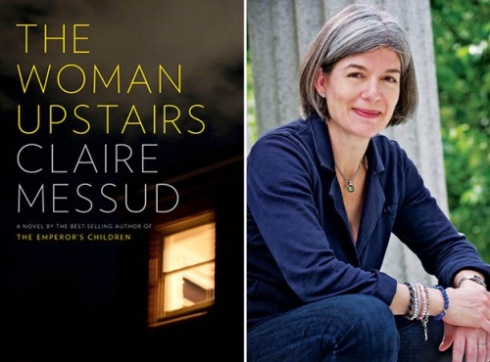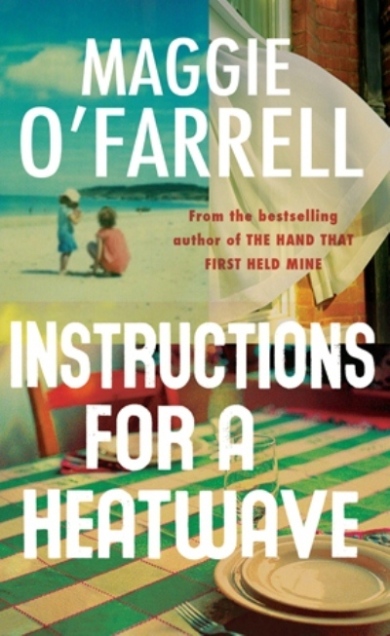McEwan reigns
November 11, 2014 at 10:24 pm | Posted in Great for Book Clubs, Middle Weight Fiction, The Children Act | 2 CommentsTags: Book Clubs, book review, good book reviews, Great Reads, new fiction, recomended reads
Ian McEwan ‘The Children Act’, Jonathan Cape 2014
Ian McEwan is a master storyteller. In his latest novel he brings us on a journey into the moment of a life of a very successful high court judge, Fiona and the personal and legal challenges she simultaneously faces.
McEwan employs his impressive skills of engineering a plot and grinding the wheels of prose to tenderly lament a marriage in peril after thirty years and to bring us on the journey of Fiona’s greatest professional challenge – the case of a seventeen year old Jehovah’s Witness boy who is refusing a lifesaving blood transfusion on the grounds of his religion.
To compare this novel to ‘Solar’ or ‘Saturday’ would be an easy thing to do but not appropriate, for this novel relays something that has provoked McEwan’s sensibilities and interest and perhaps it is this suspect personal feel that distinguishes this novel from his others.
The Guardian, in their review of ‘The Children Act’ observed that McEwan is fascinated with ‘great institutionalized authorities’ in the upper echelons of society – his protagonist in ‘Saturday’ from the esteemed medical profession and in ‘Solar’ a research scientist. Now in ‘The Children Act’ a high court judge. His deluges into Fiona’s personal difficulties however feel more poignant and sit a little less easy than journeys with his previous characters whose theatrical personalities lend themselves to plots of great scope and pace.
What does McEwan feel about Fiona and her situations really? I’m not sure by the end of the novel but I know her view of the world and her vantage point from the legal profession captured his imagination and I felt glad to have been moved by some deeply beautiful prose;
‘It could be just like that, a poisonous obsession, an addiction drawing him away from home, bending him out of shape, consuming all they had of past and future, as well as present.
Either way unbearable.
Unbearable and fascinating. And irrelevant.’
The Children Act in haiku
Legal vantage points
Logic and closed emotions
Verdicts that flounder
‘The Woman Upstairs’ vs. ‘Instructions for a Heatwave’
November 10, 2013 at 2:59 pm | Posted in Great for Book Clubs, Instructions for a Heatwave, Middle Weight Fiction, The Woman Upstairs | 3 CommentsTags: Book Reviews, bookclub, good book reviews, new fiction
‘The Woman Upstairs’ vs. ‘Instructions for a Heatwave’
I love both Claire Messud and Maggie O’Farrell. They are both accomplished, polished storytellers and professionals of emotionally awakening prose. In 2006 Claire Messud’s ‘The Emperors Children’ moved me in a way no other piece of literature had. And in 2005 I sacrificed much sleep in reading Maggie O’Farrell’s ‘The Distance Between us’.
‘The Woman Upstairs’ deals with a very interesting and perhaps under-explored topic that of a woman’s disillusion with her place in the world and the crushing binds of familial duty.
Women are expected to be good and nice and ‘The Woman Upstairs’ shows this to be a perennial and generation busting expectation even in the 21st Century. But most importantly ‘The Woman Upstairs’ deals with the unapologetic and growing anger a woman feels when she finds the time to think broadly about her life in this context.
Messud’s leading heroine Nora Eldridge is mad as hell when we first meet her;
‘How angry am I? You don’t want to know.’
Nora desired to be a fine artist but was counseled by her parents to become a teacher instead and have a stable career. Familial circumstances then caused her to devote much time to taking care of her terminally ill mother and then her aging father to the detriment of her own life and dreams. These limits in her life caused her to develop feelings of self-doubt and cowardice that prevented her from living fully and without fear.
A new young pupil in Nora’s elementary school brings into her life an exotic and beautiful family of Lebanese origin. True scholars and artists they bring Nora into their glamorous life of culture and freedom. Nora at lasts tastes the life she has always dreamed of but quickly becomes precariously close with each member of the family as they become for her the family she never had.
The prose and plot is not perhaps as captivating as that of ‘The Emperors Children’ but this novel is just as important as it asks in every chapter questions about a woman’s place in the world, it questions the real and unrealistic expectations of a woman and looks at the importance of a woman’s relationship with herself.
Set in London during the heatwave of 1976 ‘Instructions for a Heatwave’ is a novel based around a family of five whose patriarch tells his wife he is popping out for a newspaper and never comes back.
This brings the three adult children back together to their family home as the search for the AWOL father gets underway. In close proximity to each other the children’s own problems and life situations leak out and brew all hot summer long. As we learn about the human problems each adult child faces the novel becomes a great depiction of a real family facing down difficult marriages, lost dreams, unplanned pregnancies and the worst parts of their personalities hotting up under the pressure of the heatwave.
The reader never assumes one member of the family could have a known explanation for the fathers leaving or that the intimacy of this secret could bring the family closer together. One of Maggie O’Farrell’s greatest traits as an author is to find intimacy in unusual places; in explosive secrets, in geographical distances or in different life choices and how they can help one to appreciate another. Set against the raging summer heat the secrets of the novel cook to boiling point and perhaps like a full moon the characters are unusually affected by the unrelenting high temperature of the summer of 1976.
Maggie O’Farrell’s novels love to suggest that families and marriages are not always as they seem and that secrets may often be at their best when revealed. This latest novel does just that and is a delicious and rapturous addition to her catalogue.
Haiku; The woman upstairs, finds herself in the heatwave, with no more secrets
Blog at WordPress.com.
Entries and comments feeds.


